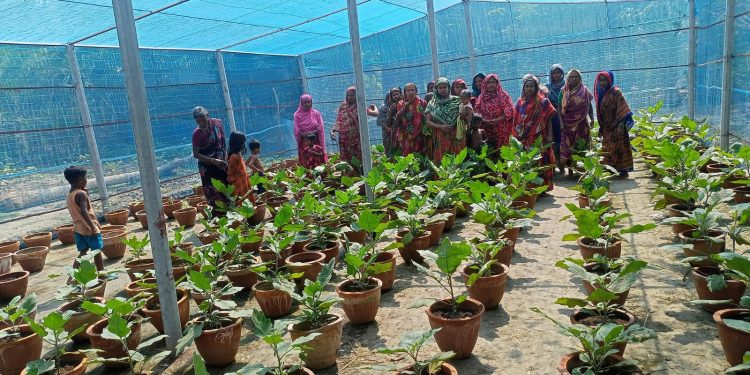#UNDP #hydroponics #earthenpots #sustainablefarming #coastalcommunities #plasticpollution #Bangladesh #Gender-ResponsiveCoastalAdaptationProject #environment-friendlypractices #BeatPlasticPollution
The United Nations Development Programme (UNDP) has taken a remarkable step towards combating plastic pollution in vulnerable coastal areas by promoting sustainable hydroponic farming methods using earthen pots. Through the “Gender-Responsive Coastal Adaptation (GCA) Project” in Bangladesh’s Satkhira and Khulna regions, UNDP has empowered women to embrace hydroponics, leading to significant reductions in plastic usage and contributing to a greener, more sustainable future. This article explores the development and consequences of the GCA project’s efforts to foster environment-friendly practices in the fight against plastic pollution.
The GCA project, jointly funded by the Green Climate Fund and Bangladesh, addresses the environmental challenges faced by coastal communities. Rising sea levels have resulted in acute water scarcity and saline water encroachment, making conventional farming methods difficult. In response, UNDP introduced sustainable hydroponics using earthen pots as a viable solution.
Hydroponics is a revolutionary farming technique that nurtures plant growth in nutrient-rich water solutions, eliminating the need for soil. This method has proven highly effective in reducing water usage and minimizing the reliance on harmful pesticides and herbicides. Moreover, hydroponics has facilitated higher crop yields in limited spaces, offering a sustainable alternative for regions affected by salinity.
The GCA project initiated the formation of 92 women groups, with each group consisting of 25 members, in the Assasuni upazila of Satkhira. These groups were empowered to adopt hydroponics using 23,000 earthen pots. This shift from plastic to biodegradable earthen pots has resulted in preventing the usage of an estimated 10,166 kg of plastic, signifying the project’s commitment to #BeatPlasticPollution.
The adoption of hydroponics and the use of earthen pots have had far-reaching positive consequences for both the environment and coastal communities. By reducing plastic waste generated by conventional farming practices, the GCA project has significantly contributed to a cleaner and more sustainable environment. The benefits of hydroponics extend beyond plastic reduction; the method’s ability to grow crops indoors provides protection against frequent extreme weather events such as cyclones and flooding, safeguarding livelihoods.
Furthermore, by empowering women to take the lead in adopting hydroponics, the project has promoted gender-responsive initiatives, fostering greater gender equality and inclusivity in coastal communities.
The GCA project’s impact is evident in the testimonials of beneficiaries like Sharifa Khatun and Sabina Yesmin, who have expressed their gratitude and highlighted the importance of environmentally friendly practices. The project has successfully raised awareness among coastal communities about the significance of their actions in preserving the environment and creating a safer world for future generations.
As UNDP continues to support innovative projects like the GCA, it reaffirms its commitment to building a greener future for vulnerable coastal communities while inspiring sustainable practices worldwide.












